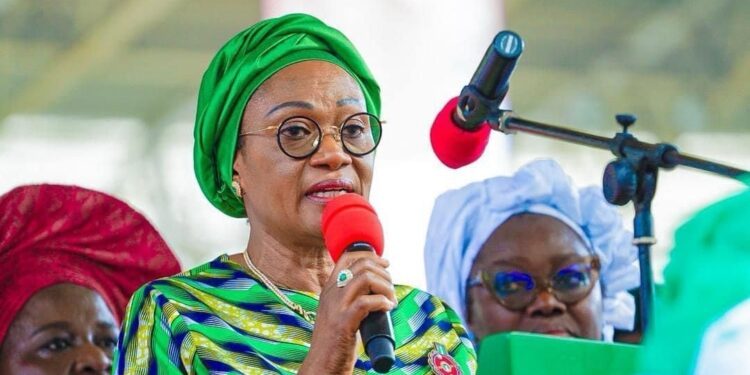Nigeria’s First Lady, Oluremi Tinubu, has reaffirmed her commitment to ending tuberculosis (TB) spread in Nigeria by 2030.
She stated this during the official commissioning of new molecular diagnostic machines to improve TB detection and treatment nationwide on Thursday in Abuja.
Mrs Tinubu, represented by the wife of the Kwara State governor, Olufolake Abdulrazaq, at the commissioning in Bwari, emphasised the significance of the new diagnostic machines.
The First Lady said the machines, provided through her Renewed Hope Initiative (RHI), were a direct fulfilment of an additional ₦1 billion pledge made earlier this year during the World TB Day outreach in Sauka Village, FCT
She explained that the new machines would be deployed across underserved areas in Nigeria to enable rapid, accurate TB detection, ultimately breaking the chain of transmission and saving lives.
The First Lady called for greater domestic resource mobilisation, stressing that ending TB required more than machines and medication, but human, financial, technical, and political resources.
“As the global and national champion for TB, I assure you I will continue to advocate and lead the fight to end TB in Nigeria by 2030,” she said.
Mrs Tinubu also lauded the Federal Ministry of Health and Stop TB Partnership Nigeria for their stewardship and accountability, urging all stakeholders to “stand shoulder to shoulder” in the fight against the disease.
The Minister of Health and Social Welfare, Muhammad Ali Pate, commended the First Lady for her leadership, adding that the federal government was working to integrate TB services into the primary healthcare system, improve diagnostic capacity, and incentivise health workers.
Mr Pate said that in just three months of 2025, over 46 million visits were recorded across primary healthcare centres in Nigeria, underscoring the rising public confidence in the system.
He said the Tinubu administration’s healthcare reforms, backed by state and local governments, the private sector, and global partners, were beginning to yield tangible results.
Godwin Ntadom, the director of public health at the Ministry of Health and Social Welfare, added that with the new diagnostic innovation, test results can now be obtained in under 30 minutes, as opposed to the previous delays of several days.
He lamented that despite the availability of free TB treatment, high morbidity and mortality persist due to delayed diagnosis and low awareness.
He described the new TB diagnostic facility as a timely intervention that would drastically cut diagnostic delays.
(NAN)






